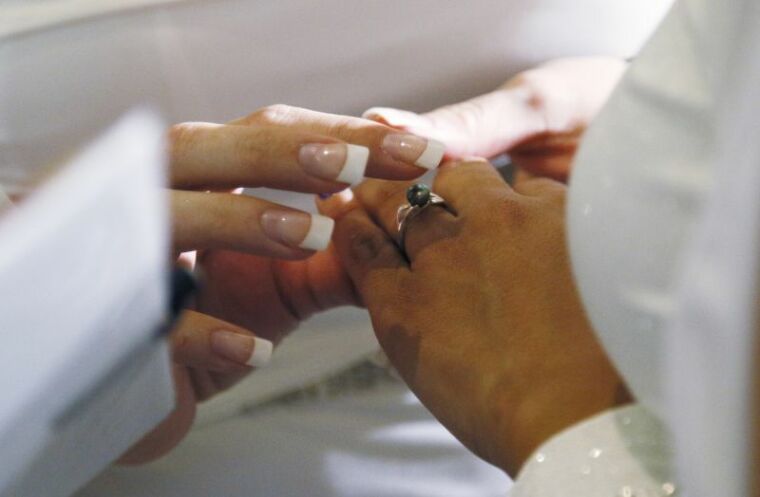Woman cites faith as reason for effort to overturn LGBT anti-discrimination law

DENVER (Christian Examiner) – A Christian small business owner in Colorado has filed a federal lawsuit asking the court to toss the state's anti-discrimination law, which she says effectively forces people of faith to use their labor in support of same-sex marriage.
Lorie Smith, who owns a website and graphic design company called 303 Creative LLC, filed the suit in federal court Sept. 20. In the complaint, Smith is described as a woman who "believes that God has called her to use her talents and her company in a way that honors Him."
Part of Smith's business is creating custom wedding-related websites which only depict marriage between one man and one woman, as she believes is described as God's original design for humanity.
While I will serve anyone I am always careful to avoid communicating ideas or messages, or promoting events, products, services, or organizations, that are inconsistent with my religious beliefs.
Smith claims she would like to publish that information, but isn't allowed to by the Colorado Anti-discrimination Act because any publication, display or communication speaking of the exclusivity of Christian, heterosexual marriage would be perceived as dismissing members of the LGBT community as "unwelcome, objectionable, unacceptable, or undesirable."
"Therefore, Lorie and 303 Creative cannot explain on 303 Creative's website their religious belief that God designed marriage as an institution between one man and one woman and why they cannot create wedding websites promoting and celebrating any other conception of marriage," the complaint reads.
Attorneys for Smith are seeking declaratory relief from the court because Colorado's anti-discrimination law, they claim, violates her First and Fourteenth Amendment rights to free speech, religious liberty and due process (because the state's Civil Rights Commission could impose fines on her business without an avenue of recourse for her).
The current website for 303 Creative already contains a vague description of Smith's religious beliefs. In it, she claims her faith makes her "selective" about the messages she creates and promotes.
"While I will serve anyone I am always careful to avoid communicating ideas or messages, or promoting events, products, services, or organizations, that are inconsistent with my religious beliefs," Smith wrote on the website.
Smith's attorneys, Alliance Defending Freedom and former Colorado Assistant Solicitor General Michael L. Francisco, appeal to the same language used in the U.S. Supreme Court's 5-4 ruling that created the right of gay marriage in Obergefell v. Hodges. In the majority ruling by Justice Anthony Kennedy, the court claimed human "dignity" required all states to recognize the fundamental right to marry for homosexuals.
Smith's suit alleges that her dignity is also at stake because Colorado's anti-discrimination law forces her faith into the closet and leaves her with the choice between denying her livelihood and facing severe financial penalties for not complying with the state's opinion on marriage.
The suit also claims, using Justice Kennedy's own words, "the First Amendment ensures that religions, those who adhere to religious doctrines, and others have protections as they seek to teach the principles that are so fulfilling and so central to their lives and faiths."
According to Denver's ABC affiliate, which cast the case as a petition to "deny rights to gay couples," the group Freedom for All Coloradans claimed the lawsuit was an effort to undermine the Obergefell decision.
"Allowing business owners to refuse service to customers whom they dislike, or disapprove, will open a can of worms and make it more difficult to enforce Colorado's laws that ensure businesses are open to everyone," the group said.
The group has publicly stated its opposition to "religious exemption bills" which, according to them, undermine the rule of law.